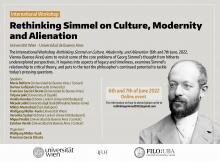CfP: Constructing and (Re)Presenting Cultural Heritage. Imperial, National, and International Constellations in Eastern Europe
What can be considered as cultural heritage is the result of not only a multitude of negotiations by a broad spectrum of actors that affect self-understanding as well as positioning in the world, but also of changing sociopolitical orders. In reflecting on this perspective, this workshop focuses on the multifaceted history of the cultural heritage of Eastern Europe.


